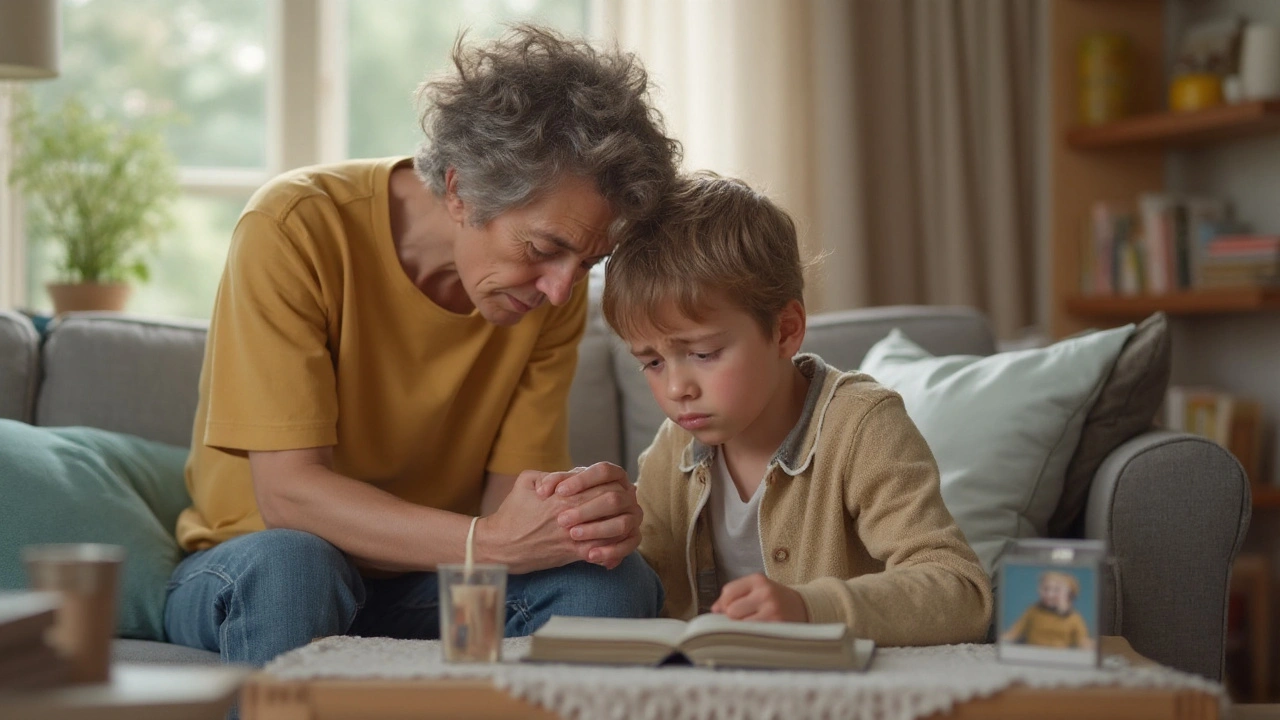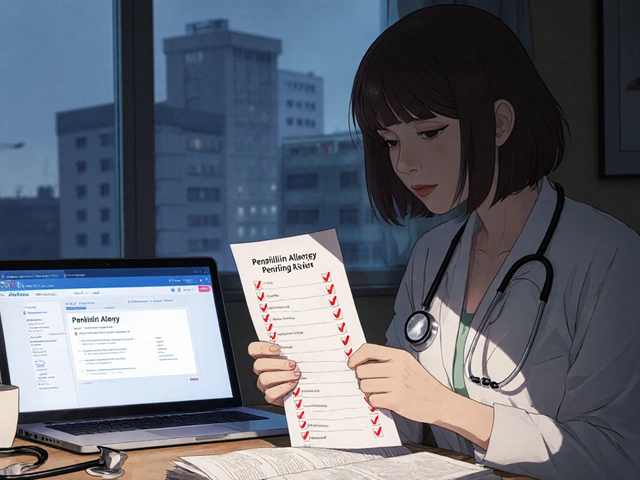Obsessive‑Compulsive Disorder (OCD) is a chronic mental‑health condition marked by intrusive thoughts (obsessions) and ritualistic behaviors (compulsions). It affects roughly 2% of the global population and often begins in adolescence. Understanding OCD’s core features is the first step for anyone providing OCD support at home.
Quick Takeaways
- Validate feelings without reinforcing compulsions.
- Encourage professional treatment: CBT with ERP.
- Set clear, compassionate boundaries.
- Use structured communication to reduce anxiety.
- Leverage support groups and reliable resources.
Why Family Accommodation Can Backfire
When a relative constantly helps with rituals-like checking locks multiple times-their well‑meaning actions actually family accommodation maintains the OCD cycle by reducing the person’s fear of facing the anxiety. Studies from the National Institute of Mental Health show that high accommodation predicts greater symptom severity and slower treatment response. Recognizing this pattern helps you shift from “doing for” to “supporting with”.
Core Treatment Pillars You Can Reinforce
Professional help is non‑negotiable, but families can strengthen three evidence‑based pillars:
- Cognitive‑Behavioral Therapy (CBT) focuses on identifying irrational thoughts and replacing them with realistic ones.
- Exposure and Response Prevention (ERP) gradually exposes the person to feared situations while blocking the compulsion.
- Selective Serotonin Reuptake Inhibitors (SSRIs) are medications that boost serotonin to reduce obsessive intensity.
When you hear your loved one talk about therapy, ask supportive questions like, “What’s one small step you’d feel comfortable trying this week?” rather than offering quick fixes.
Practical Day‑to‑Day Tips
Below are actions you can start using immediately. Each tip links to a larger concept, reinforcing the overall network of support.
- Validate, don’t enable. Say, “I see this is really hard for you,” before gently reminding them of the exposure goal.
- Use neutral language. Replace “You’re overreacting” with “I notice this triggers a lot of stress.”
- Set predictable routines. A consistent bedtime and meal schedule lowers baseline anxiety, making ERP sessions smoother.
- Create a “stress‑log.” Track triggers, compulsions, and coping attempts. This data becomes a goldmine for therapists.
- Practice delayed response. If a partner asks to check the stove repeatedly, count to ten before replying, gradually extending the wait.
Communication Toolbox
Effective dialogue reduces conflict and builds trust. Use the S.T.A.R. framework:
| Step | Action | Why It Helps |
|---|---|---|
| Set | Define a calm time and place. | Reduces physiological arousal before discussing triggers. |
| Talk | Describe observations without judgment. | Builds factual baseline; avoids blame. |
| Ask | Invite their perspective and preferences. | Empowers autonomy, a key ERP principle. |
| Respond | Agree on a small, concrete next step. | Creates momentum and measurable progress. |

Connecting with Wider Resources
Beyond the immediate family, tap into external networks:
- Support groups offer peer‑led forums where members share coping tactics and reduce stigma. Look for groups run by reputable NGOs or university clinics.
- Mental‑health professionals include psychologists, psychiatrists, and licensed therapists specializing in OCD. Verify credentials via national boards.
- Educational webinars provide up‑to‑date research on ERP techniques and medication management. Many universities post recordings for free.
When you recommend a resource, ask, “Would you like me to find a local group or an online community?” This respects their agency while offering help.
Handling Setbacks Gracefully
Relapse isn’t failure; it’s data. If a ritual spikes, follow this three‑step plan:
- Pause and observe. Note the thought, the anxiety level (0‑10 scale), and the behavior.
- Re‑engage the exposure. Gently remind them of the ERP goal and suggest a shortened exposure.
- Debrief. After the episode, discuss what worked and what might need adjustment, always with compassion.
Research from the International OCD Foundation shows that couples who view setbacks as “learning moments” maintain higher treatment adherence.
Building a Long‑Term Support Plan
Think of your involvement as a sustainable partnership, not a short‑term rescue mission. Draft a simple plan that includes:
- Monthly check‑ins. A brief, scheduled conversation to review progress.
- Boundary review. Identify any new accommodations that have crept in.
- Resource update. Add any new apps, podcasts, or community events.
Write this plan in a shared document or notebook; visibility keeps everyone accountable.
Related Topics to Explore Next
If you found this guide helpful, consider diving deeper into:
- “Understanding Anxiety Disorders and Their Overlap with OCD.” \n
- “How SSRIs Work: Benefits and Side‑Effects for OCD.”
- “Mindfulness Techniques That Complement ERP.”
These articles sit under the broader “Mental Health” cluster and link to narrower pieces about specific therapy modalities.
Frequently Asked Questions
How can I tell if I’m enabling my loved one’s OCD?
If you regularly perform the compulsions for them-checking doors, washing dishes repeatedly, or arranging items-you’re likely accommodating. A good test is to ask, “If I stopped doing this, would the anxiety become intolerable?” If the answer is yes, accommodation is high.
When should I suggest professional therapy?
If obsessions dominate daily life for more than a few weeks, or if compulsions interfere with work, school, or relationships, it’s time to recommend a mental‑health professional. Early intervention improves ERP outcomes.
Can medication replace therapy for OCD?
Medication can lessen symptom intensity, but it rarely eliminates the need for CBT/ERP. Most guidelines advise a combined approach for the best long‑term results.
What are safe ways to set boundaries without hurting feelings?
Use “I” statements focused on your experience: “I feel stressed when I have to double‑check the stove. Can we try a timer together?” This frames the boundary as a shared goal rather than criticism.
Are online support groups effective?
Yes, when they’re moderated by clinicians or reputable NGOs. They provide anonymity, diverse perspectives, and practical tips that complement in‑person therapy.






Cori Azbill
September 22, 2025 at 19:58
This is such a load of woke nonsense. You think telling someone to 'validate feelings' is going to stop their brain from screaming that the stove is on fire? LOL. OCD isn't a vibe check-it's a neurological glitch. Stop coddling and get them on ERP or GTFO. 🤦♀️